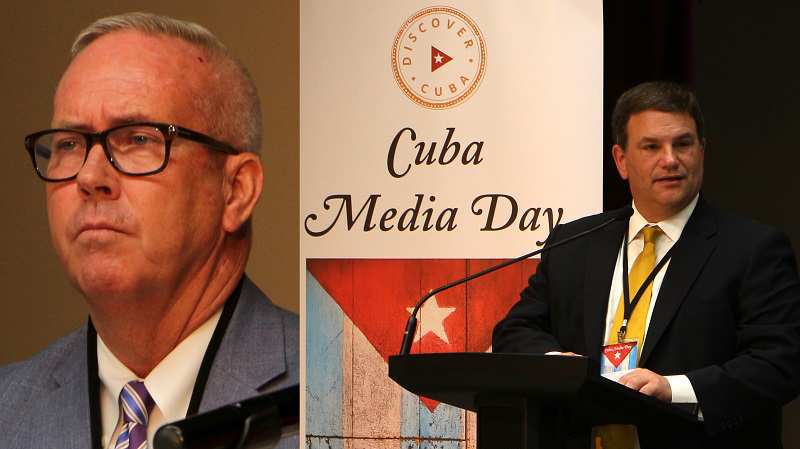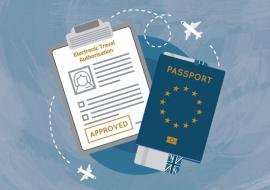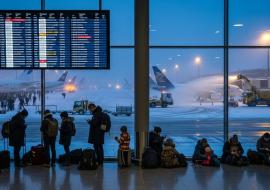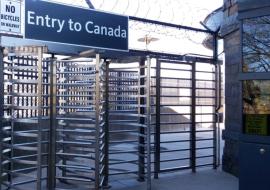One on One with Terry Dale and Tom Popper

The Cuba Media Day was held on January 29 at the Meliá Cohiba Hotel in Havana. The one-day brought along many longstanding advocates of free Cuba travel from the U.S., including InsightCuba President Tom Popper –who organized and emceed the gathering-, and Terry Dale, President and CEO of the U.S. Tour Operator Association (USTOA).
Caribbean News Digital was in attendance and had the chance to talk with both men, who spelled out their views on what to expect on the months ahead as far as American travelers coming to Cuba is concerned, as well as the efforts their organizations will conduct back home in presenting Cuba as a safe and welcoming destination for American travelers.
The backdrop for the conversation with both Mr. Popper and Mr. Dale hinged on the same opening fact: Cuba recently won the 2017 Excelencias Award in FITUR –presented by the Excelencias Group- as one of the world’s safest travel destinations.
Now, the question on anybody’s mind could also be the same. How effectively could this information be used in the U.S. to make the American people aware of the fact that Cuba is actually a safe destination for them and eventually make the Trump administration change its rhetoric on Cuba?
“I think the recognition that Cuba is one of the safest travel destinations in the world is tremendous. It’s important now to turn to all the channels and tools we have to spread out the word. Social media is extremely critical in achieving this goal and in telling the American people that this recognition was given to Cuba,” Mr. Dale told Caribbean News Digital.
In his view, the Excelencias Award given to Cuba by the Excelencias Group should be used for the collective advantage of all those travel groups and companies in the United States that advocate for free travel to the Caribbean island.
“We have to work as hard as we can with the State Department to try to educate them on Cuba and let them know that Cuba is indeed safe for U.S. travelers”, he said later on in the course of the conversation.
When asked whether the issuance of certified travel programs by USTOA could really help in preventing the U.S. State Department from releasing travel alerts on Cuba, Mr. Dale told Caribbean News Digital that this is some kind of certification USTOA needs to create to designate travel conditions on certain countries.
“But in the meantime, what we need to do is talk about this award back home and try to educate the State Department,” he concluded.
For his part, Tom Popper of InsightCuba thinks he’s not quite sure who in the U.S. has the ability to change the Trump administration’s mind (on Cuba) other than just time and education. However, he remains confident on what the legislative branch can actually achieve in this sense.
“There’s a bipartisan group of senators and House representatives that have been historically very much in favor of engagement and freedom to travel to Cuba. So ultimately, the U.S. embargo on Cuba and the travel restrictions do sit on the hands of Congress, so they are the ones who have the ability to end it,” he explained to Caribbean News Digital during a brief exclusive interview Monday morning.
Therefore, with the ability to end this gridlock in their hands, their influence on the president and how they could maneuver with him played out a little bit in 2017 when the liberalization of travel to Cuba didn’t pan out.
“People are now afraid that we could go back to the days of 2003 or 2004 when, under the Bush White House, all people-to-people and family travel between Cuba and the U.S. was significantly restricted,” Mr. Popper said.
For many in both Cuba and the U.S., one ray of hope could beam on U.S.-Cuba relations if the Democrats eventually seize control of either the Senate or the House of Representatives during the midterm elections in November 2018. But for Mr. Popper, the issue goes beyond that standpoint.
“Until we have full support of both houses in the U.S. Congress and in both parties to end the embargo, Congress would just be playing sides one way or the other, either you’re pro-engagement or you are not. And the President, through executive orders, can control travel and trade within this space,” he said at the end of the interview.














